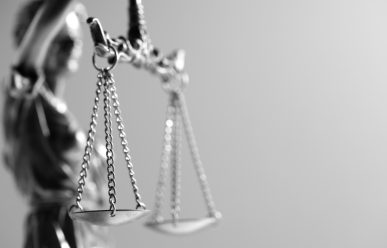On Wednesday June 25, in a unanimous ruling the Supreme Court held that the police need warrants to search the cellphones of people they arrest. Courts have long allowed warrantless searches in connection with arrests, allowing officers to conduct a full search of the person being arrested as well as any property on or relatively near them at the time they are arrested.
However the majority opinion by Chief Justice John G. Roberts, Jr. brought the Fourth Amendment and its warrant requirement fully into the 21st century, noting that the vast amount of data contained on modern cellphones must be protected from routine inspection.
The Court came to this decision after hearing arguments in two cases this past term. The first, Riley v. California, involved the arrest of David L. Riley, who was pulled over in San Diego in 2009. After finding firearms in his vehicle, the police searched Mr. Riley’s smartphone and discovered entries they associated with a street gang. A more thorough search of the phone led to information that linked Riley to a murder attempt for which he was later convicted and sentenced to 15 years in prison; a California appeals court said neither search of the phone required a warrant. The second case, United States v. Wurie (transcript of oral argument here), arose from a search of the call log of the flip phone of Brim Wurie, who was arrested in 2007 and charged with gun and drug crimes. Unlike the California court, a Boston appellate court threw out the evidence found on Wurie’s phone.
The Fourth Amendment protects the American people against unreasonable searches or seizures. Subject to a few well-defined exceptions, police ordinarily must obtain a warrant prior to conducting a search or seizure of a person or property. One of those exceptions is a search that is conducted incident to arrest –an officer may conduct a warrantless search of any person arrested. This search includes property located on the person – including pockets, purses, backpacks, even cigarette packs – as well as the surrounding area within the arrestee’s immediate control.[1] This expansive ability to conduct a search without a warrant has been long justified by a need to ensure officer safety and to prevent the possible destruction of evidence.
The Justice Department had argued that cellphones were not materially different from wallets, purses, and address books. Chief Justice Roberts disagreed: “That is like saying a ride on horseback is not materially indistinguishable from a flight to the moon . . . .” In sweeping language the Court determined that the old rules cannot be applied to modern cellphones, which “as a category, implicate privacy concerns far beyond those implicated by the search of a cigarette pack, a wallet, or a purse . . . .” Unlike knives or guns that might be kept in pockets or backpacks, or razor blades that might be kept in cigarette boxes or wallets, Roberts observed that “digital data stored on a cell phone cannot itself be used as a weapon to harm an arresting officer or to effectuate the arrestee’s escape. . . . the data on the phone can endanger no one.”
The warrant requirement is an important aspect of the Fourth Amendment jurisprudence. While the Supreme Court observed that this decision would indeed make the job of law enforcement more difficult, in this day and age warrants may be obtained with increasing efficiency at essentially all hours of the day and night. Additionally, although the search incident to arrest exception no longer applies, this is not to say that case specific circumstances would not justify application of another exception to the warrant. The Court noted that, to the extent that a search of a cell phone might “warn officers of an impending danger, e.g., that the arrestee’s confederates are headed to the scene,” there may be another applicable exception such as the exigent circumstances exception.[2]
This opinion signals the Court’s increasing concern about government intrusion into Americans’ private lives through the use of technology. Noting that modern cellphones contain “a digital record of nearly aspect of their lives – form the mundane to the intimate,” Chief Justice Roberts proclaimed: “The fact that technology now allows an individual to carry such information in his hand does not make the information any less worthy of the protection for which the Founders fought.” Constitutional law scholar and professor Stephen Vladeck opined that the Court’s ruling should “scare the bejesus” out of those who have vigorously defended the government’s ability to conduct warrantless search programs, such as the controversial NSA surveillance program that continues to make headlines across the country.[3]
The text of the Supreme Court opinion may be found at http://www.supremecourt.gov/opinions/13pdf/13-132_8l9c.pdf.
[1] The extent to which officers may search property found on or near an arrestee is governed by three primary cases: Chimel v. California, 395 U.S. 752 (1969), requires that a search incident to arrest be limited to the area within the arrestee’s immediate control, where it is justified by the interests in officer safety and in preventing evidence destruction; United States v. Robinson, 414 U.S. 218 (1973), held that the risks identified in Chimel are present in all custodial arrests, even when there is no specific concern about the loss of evidence or the threat to officers in a particular case; and Arizona v. Gant, 556 U.S. 332 (2009), permits searches of a car where it is reasonable to believe that evidence of the crime of arrest might be found in the vehicle.
[2]
The exigent circumstances exception to the warrant requirement allows law enforcement to conduct a warrantless search or seizure where police are responding to an emergency or where there is a compelling need for official action and no time to secure a warrant.
[3] Robert Barnes, Supreme Court says police must get warrants for most cellphone searches, Wash. Post, June 25, 2014.



